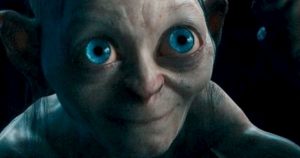I love villains. I love writing them. I love reading them. I love seeing them brought to life on big screen and small.
Well, let me modify that. I love villains in fiction and movies and television shows. I can’t stand real-life villains. (In the interest of keeping things civil, I won’t name any of the real-life villains I have in mind, even the one whose name rhymes with Peon Husk.) But a good fictional villain can make even the most mundane of stories shine. And a boring or ineffective villain can ruin an otherwise effective narrative. Over the years, as a reader, teacher, and editor, I have seen many beginning writers undermine their stories by making the same mistakes in the development of their antagonists.
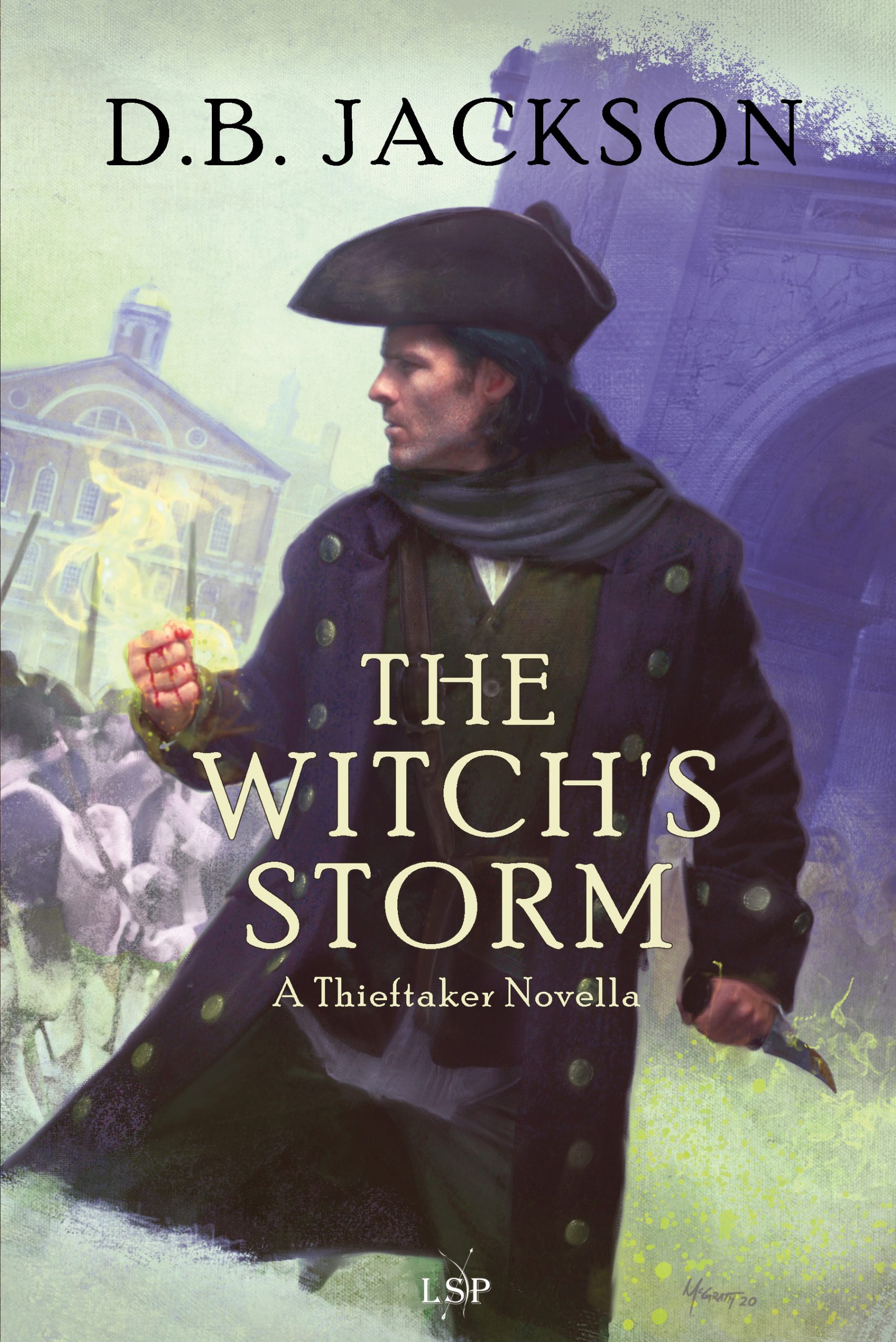 What qualities make a villain compelling? I intend to dive into that. Who are some of my favorite villains? I’ll get into that, too. But let me offer a few quick points up front. I don’t think much of the all-powerful-evil-through-and-through villains one often encounters in the fantasy genre. Sauron, for instance — the evil god whose world-conquering designs lie at the heart of J.R.R. Tolkien’s The Lord of the Rings — is, to my mind, a very boring villain. He’s really powerful, and he’s really, really evil. And yes, he’s cunning, which is a point in his favor, and he’s scary (or his minions are). But beyond that, and unless one has gone back and read all his backstory in The Silmarillion, there isn’t really much to him. He lacks dimension and complexity.
What qualities make a villain compelling? I intend to dive into that. Who are some of my favorite villains? I’ll get into that, too. But let me offer a few quick points up front. I don’t think much of the all-powerful-evil-through-and-through villains one often encounters in the fantasy genre. Sauron, for instance — the evil god whose world-conquering designs lie at the heart of J.R.R. Tolkien’s The Lord of the Rings — is, to my mind, a very boring villain. He’s really powerful, and he’s really, really evil. And yes, he’s cunning, which is a point in his favor, and he’s scary (or his minions are). But beyond that, and unless one has gone back and read all his backstory in The Silmarillion, there isn’t really much to him. He lacks dimension and complexity.
So, let’s begin there. In my opinion (and yes, ALL of this is just my opinion), villains should be complex. There should be more to them than mere evil. Their backstory should contain the seeds of their villainy and the twisting of their world-view. Because let’s face it, most of the villains we encounter and create do some pretty messed up things in pursuit of their agendas. They’re not all there sanity-wise. But how they wound up there ought to be an interesting tale in and of itself. And the fact that their actions are working at cross purposes with those of our protagonists should not mean they can’t have some normality and even joy in their lives. They can and should have people and things that they love. They should be relatable for our readers. One of my very favorite villains is Brandan of Ygrath, the emperor-sorcerer who is the villain of Guy Gavriel Kay’s Tigana. He is charming, brilliant, loving with those he cares about, handsome, refined. He is also ruthless, merciless, temperamental, and unpredictable. He does horrible, cruel, vicious things for reasons that are both understandable and insufficient. He is nearly as easy to like as he is easy to hate.
Too often, I see young authors make their villains unintelligent and unsubtle. They give their villains lots of power, but then undermine that power by making their machinations transparent. Villains, I believe, need to be canny, keen of mind, creative. Their schemes should be the stuff of genius. Remember the old Adam West Batman series? I used to watch it after school when I was little. Invariably, Batman’s foes would leave him in a situation where he wasn’t dead yet, but he would be soon. They were sure of it. So they didn’t need to wait around to make sure. They could leave, and eventually, the pendulum on the giant clock with the medieval axehead attached to it would cleave the masked crusader in two! And, of course, their premature departure gave Batman and the Boy Wonder the opportunity they needed to escape their less-than-certain deaths. Stupid villains were entertaining and convenient when we were kids watching bad TV. But for more sophisticated fiction, stupid villains will ruin a good tale.
Think of it this way: Assuming that our protagonist eventually manages to overcome the villain in our story, the power AND intelligence AND shrewdness of the bad guy reflect well on our good guy. The easier the villain is to defeat, the less challenging their plot against the world, the less impressive our hero appears when they prevail. When we build up our villain, when we make them really smart and really cunning, our hero’s victory becomes that much more of an achievement. Consider it narrative mathematics.
 Some of my favorite villains from my own work? Quinnel Orzili from the Islevale Cycle (Time’s Children, Time’s Demon, Time’s Assassin), Saorla from the second and third books in The Case Files of Justis Fearsson, and, my absolute favorite, Sephira Pryce from the Thieftaker books. Yes, she later become something other than a pure villain, but that was basically because she became SO much fun to write that I had to find a way to keep her around and relevant.
Some of my favorite villains from my own work? Quinnel Orzili from the Islevale Cycle (Time’s Children, Time’s Demon, Time’s Assassin), Saorla from the second and third books in The Case Files of Justis Fearsson, and, my absolute favorite, Sephira Pryce from the Thieftaker books. Yes, she later become something other than a pure villain, but that was basically because she became SO much fun to write that I had to find a way to keep her around and relevant.
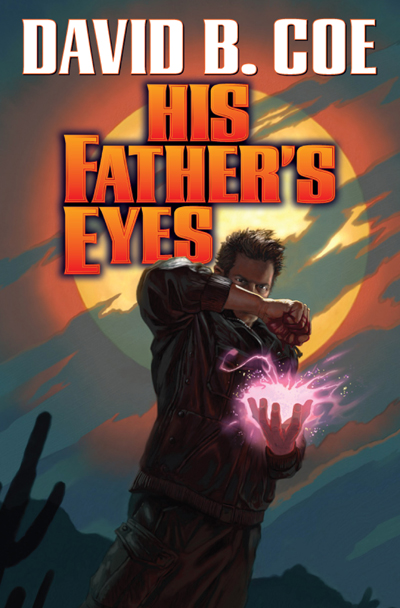 My favorite villains in the work of others? I already mentioned Brandan of Ygrath. John Rainbird, from Stephen King’s masterpiece, Firestarter, is a terrific villain. Smart, brutal, and yet also human. In Catie Murphy’s marvelous Negotiator trilogy there are two supernatural “bad guys,” Daisani and Janx, whose personal rivalry threatens the fabric of the mortal world. Their mutual animus and their own needs and desires humanize them and make them terrific foils for Magrit Knight, the series’ protagonist. And I would add that a certain writer I care not to mention in light of recent revelations has created some truly amazing villains. Too bad he wound up being a villain worthy of his own undeniable storytelling talents.
My favorite villains in the work of others? I already mentioned Brandan of Ygrath. John Rainbird, from Stephen King’s masterpiece, Firestarter, is a terrific villain. Smart, brutal, and yet also human. In Catie Murphy’s marvelous Negotiator trilogy there are two supernatural “bad guys,” Daisani and Janx, whose personal rivalry threatens the fabric of the mortal world. Their mutual animus and their own needs and desires humanize them and make them terrific foils for Magrit Knight, the series’ protagonist. And I would add that a certain writer I care not to mention in light of recent revelations has created some truly amazing villains. Too bad he wound up being a villain worthy of his own undeniable storytelling talents.
So, make your villains relatable, make them canny and dangerous and terrifying, and make their eventual defeat a true achievement for your protagonist. And try not to be villainous yourself.
Advice for this week. Cheers!!









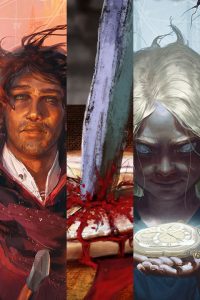 Which is another way of saying that innovation for the sake of innovation is not necessary or advised. Yes, it’s fun and challenging to write books or stories that don’t conform to simple linear narrative. I learned that with the Islevale Cycle, my time travel/epic fantasy series. And if you have ideas for playing with chronology or otherwise changing up your narrative style, by all means give it a try. But don’t feel that you have to. There are plenty of books, movies, plays, and stories out there that conform to regular old narrative form, and they do just fine. Better to write a story in the normal way and have it come out well, than to change things up just for the purpose of doing so, and thus leave your audience confused.
Which is another way of saying that innovation for the sake of innovation is not necessary or advised. Yes, it’s fun and challenging to write books or stories that don’t conform to simple linear narrative. I learned that with the Islevale Cycle, my time travel/epic fantasy series. And if you have ideas for playing with chronology or otherwise changing up your narrative style, by all means give it a try. But don’t feel that you have to. There are plenty of books, movies, plays, and stories out there that conform to regular old narrative form, and they do just fine. Better to write a story in the normal way and have it come out well, than to change things up just for the purpose of doing so, and thus leave your audience confused.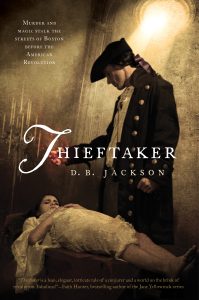 First, though, it occurs to me that in writing about openings last week, I left out one crucial, but easy-to-describe story element: “the inciting event.” The inciting event of your narrative is, quite simply, the thing that jump-starts your story, that takes the characters you have introduced in your opening lines from a place of relative stasis to a place of flux, of change, of tension and conflict and, perhaps, danger. It is the commencement of the narrative path that will carry your characters through the rest of the story. In his description of the Hero’s Journey, Joseph Campbell referred to the inciting event as the “Call to Adventure.” If you’re looking for examples, think of the arrival of the first letter from Hogwarts in Harry Potter and the Sorcerer’s Stone, or the appearance of Gandalf at Bilbo Baggins’s door in The Hobbit. In pretty much all the Thieftaker books and stories, it is the arrival of whoever Ethan’s new client will be for that episode.
First, though, it occurs to me that in writing about openings last week, I left out one crucial, but easy-to-describe story element: “the inciting event.” The inciting event of your narrative is, quite simply, the thing that jump-starts your story, that takes the characters you have introduced in your opening lines from a place of relative stasis to a place of flux, of change, of tension and conflict and, perhaps, danger. It is the commencement of the narrative path that will carry your characters through the rest of the story. In his description of the Hero’s Journey, Joseph Campbell referred to the inciting event as the “Call to Adventure.” If you’re looking for examples, think of the arrival of the first letter from Hogwarts in Harry Potter and the Sorcerer’s Stone, or the appearance of Gandalf at Bilbo Baggins’s door in The Hobbit. In pretty much all the Thieftaker books and stories, it is the arrival of whoever Ethan’s new client will be for that episode. But at the very least, we need to see our main heroes grappling with what they have endured and setting their sights on what is next for them. We don’t need this for every character but we need it for the key ones. Ask yourself, “whose book is this?” For me, this is sometimes quite clear. With the Thieftaker books, every story is Ethan’s. And so I let my readers see Ethan settling back into life with Kannice and making a new, fragile peace with Sephira, or something like that. With other projects, though, “Whose book is this?” can be more complicated. In the Islevale books — my time travel/epic fantasy trilogy — I needed to tie off the loose ends of several plot threads: Tobias and Mara, Droë, and a few others. Each had their “Louis” moment at the end of the last book, and also some sense of closure at the ends of the first two volumes.
But at the very least, we need to see our main heroes grappling with what they have endured and setting their sights on what is next for them. We don’t need this for every character but we need it for the key ones. Ask yourself, “whose book is this?” For me, this is sometimes quite clear. With the Thieftaker books, every story is Ethan’s. And so I let my readers see Ethan settling back into life with Kannice and making a new, fragile peace with Sephira, or something like that. With other projects, though, “Whose book is this?” can be more complicated. In the Islevale books — my time travel/epic fantasy trilogy — I needed to tie off the loose ends of several plot threads: Tobias and Mara, Droë, and a few others. Each had their “Louis” moment at the end of the last book, and also some sense of closure at the ends of the first two volumes.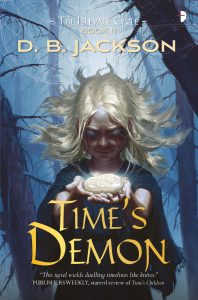 Why do I do this? Why am I suggesting you do it, too? Because while we are telling stories, our books are about more than plot, more than action and intrigue and suspense. Our books are about people. Not humans, necessarily, but people certainly. If we do our jobs as writers, our readers will be absorbed by our narratives, but more importantly, they will become attached to our characters. And they will want to see more than just the big moment when those characters prevail (or not). They will want to see a bit of what comes after.
Why do I do this? Why am I suggesting you do it, too? Because while we are telling stories, our books are about more than plot, more than action and intrigue and suspense. Our books are about people. Not humans, necessarily, but people certainly. If we do our jobs as writers, our readers will be absorbed by our narratives, but more importantly, they will become attached to our characters. And they will want to see more than just the big moment when those characters prevail (or not). They will want to see a bit of what comes after.